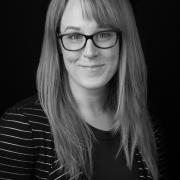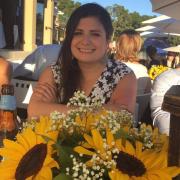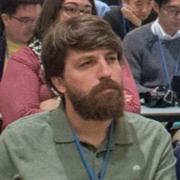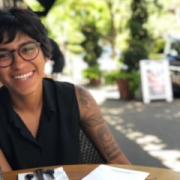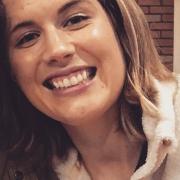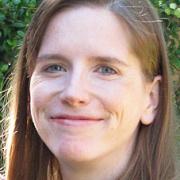Hello Seattle!
World IA Day Seattle is happening on February 23rd! We have a great event ready for you where you will get to hear from professionals in the Seattle area, engage with the IA community, and have some fun.
Tickets are on sale! Look at our Eventbrite page for details.
2019 Theme: Design for Difference
As designers, we are responsible for creating worlds of experiences, environments, services, and systems that impact millions of people – with lasting impacts. While we don’t have a Hippocratic Oath, it’s important for us to follow a similar goal to “do good” and “do not harm.” It is our responsibility as IAs to consider the consequences and impact our design decisions have on humanity and society as a whole.
Research is a foundational step in the design process. It ensures that we understand and account for diverse user needs within communities, both in our own domains and globally.
So, what differences are we designing for?
-
Difference in ability and disability
-
Difference in access to information and technology
-
Difference in language and cultural understanding
-
Difference in age, gender, and identity
-
Difference in experience
There is no average user. There is no norm.
“Different is the new normal we should be designing for.”
Inclusive design strategist Elise Roy at the 2018 IA Summit in Chicago.
How do we as information architects and designers design for this difference? What is this difference that we’re designing for? How can we better understand it and become more engaged and mindful for our different and diverse users? How might we communicate this understanding to others and provide more meaning and depth?
We build worlds. Let’s do it responsibly.
Venue, parking and transit
Amazon Oscar Building
sponsored by Browse @ Amazon (ASCS)
1007 Stewart St, Seattle, WA 98101
Room 2.300-301 (2nd Floor, entrance on Stewart St)
Public Transportation:
6 minutes away from the Westlake Light Rail Station
1 minute away from bus stops (63, 64, 70, 216, 218, 219, 252, 257, 268, 304, 308, 309, 311, 355, 402, 405, 410, 412)
Parking:
Paid parking in Amazon Oscar Building
Free parking on Saturday (7am-2am), all walking distance, at the following Amazon buildings:
Doppler - 2021 7th Ave
Day 1 - 2121 7th Ave
Obidos/Rufus - 550 Terry Ave N
Ruby/Dawson - 345 Boren Ave N
Fiona - 500 Boren Ave N
Invictus - 410 Terry Ave N
Program/Schedule
12:30pm : Registration and Introduction
1:00pm : Welcome
1:10pm : Open for Difference: Making knowledge a public good by Ashley Farley
1:55pm : Panel Discussion with Torrie Thomas, Cadi Russell-Sauve, Andy Fitzgerald, Kiran Motwani, Maria Papaleo; Moderated by Chad Rieck
2:55pm : Break
3:05pm : Lightning Poster Talks
3:15pm : Information Architecture in Artificial Intelligence by Lassana Magassa
4:00pm : Break/Raffles
4:10pm : Keynote: Soul of Seattle 2 by Domonique Meeks
5:10pm : Closing Remarks
5:20pm : Poster Session and Happy Hour!
Poster Session
Presenters will introduce their work in lighting talks throughout the day. Following the Keynote, posters will be on display and presenters will be present to discuss their work. Poster sessions are included below:
HearU: An Integrated System to Raise Awareness of Hearing Loss
Yuting Han, Beijia Wang, Mengxiao Song, Duo(Victor) Wang
HearU is an integrated system that aims to raise public awareness of hearing loss as well as create a platform for the HH community to speak out for themselves.
Ludus: classical learning through cooperative play
Allen Snider
Continuing work originally begun in late 2016, my research & design explores how the collaborative learning of Latin (today still taught much as it was two millennia ago) might be facilitated by fun & frenzied mobile gameplay. Inspired by popular apps like Duolingo & Spaceteam, ‘Ludus’ is set during the mythical fall of Troy. Only by working together to answer grammatical questions can the player-learners hope to escape the destruction!
NTUData: Designing an Institutional Data Repository for Research Data Curation and Sharing
Pei-Ni Chiang, Jian-Sin (Roxine) Lee, Wei Jeng
With the growing trend of open science in academia, scholars are more and more often asked to share their research data so as to improve transparency and reproducibility of their studies. NTUData, a prototype of a data curation system, is designed for researchers at National Taiwan University (NTU) to manage, share, and reuse research data. Through usability testing and interviews, the design team has found several features and design principles for such a research data infrastructure and corresponding stakeholders, including research institutes and information system vendors.
Employing Adults with Autism
Ajinkya Sheth, Sejal Khatri
We are designing an application for individuals with Autism. To be more specific, an online portal facilitating employment opportunities for autistic adults. We identified all the users affected directly or indirectly by ASD (Autism spectrum Disorder) and their needs. Secondly, We selected a specific use case of how an autistic adult may look for employment. Lastly, to aid him or her, we listed and categorized the most important features and utilities for them.
Lalibela
Mikias Lema
An Infographic about the churches of Lalibela, designed to further people’s exploration in understanding different languages, cultures and history around the world. Utilizing infographic design elements to make complex information accessible.
Garbage Locator Application
Atharva Naik
Garbage Locator Application lets citizens mark uncleared garbage clusters in the city. Citizens can click a picture of the uncleared garbage spot which is uploaded with geo-tagging. The marked spot appears as a red marker on the map and the city officials get notified. After clearing the spot the city officials can click a picture of the cleaned area and upload it. The citizen is notified and the red marker turns green.
Dummies Guide To Voice User Interface Design
Tiffany Ku, Proshonjit Mitra
We use voice-assisted technology every day. But how many people actually understand the science behind their beloved Alexa device? And to take it a step further, how many people can build their own voice skills? It might seem like a daunting task, but in reality, it's much simpler than it looks. Our project was a deep dive into developing a streamlined methodology for building robust voice prototypes. By employing design-thinking and utilizing information architecture principles we were able to design a complete voice experience through user flows, scripting, developing a controlled vocabulary, and prototyping using voice-based interactions.
THE INCLUSEUM’S METADATA SCHEMA: An Inclusive Control Vocabulary
Becca Fronczak, Gabbie Barnes
The Incluseum is a practice-based project and blog focused on advancing new ways of being a museum through dialogue, community building and collaborative practice. The work is specifically related to the topic of inclusion in museums. While The Incluseum project offers workshops, presentations, and training (among other offerings), the controlled vocabulary presented for WIAD19 focuses on the blog, which was first created in 2012. Blog content had not been systematically categorized and labelled. Pre-existing tags (e.g., “race/racism”, “gender”, etc.) did not accurately capture how the project's founders wanted to refer to their content. To address this situation, Becca Fronczak (Museology MA & MLIS) and Gabbie Barnes (MLIS) developed a metadata schema that matched The Incluseum's values.













